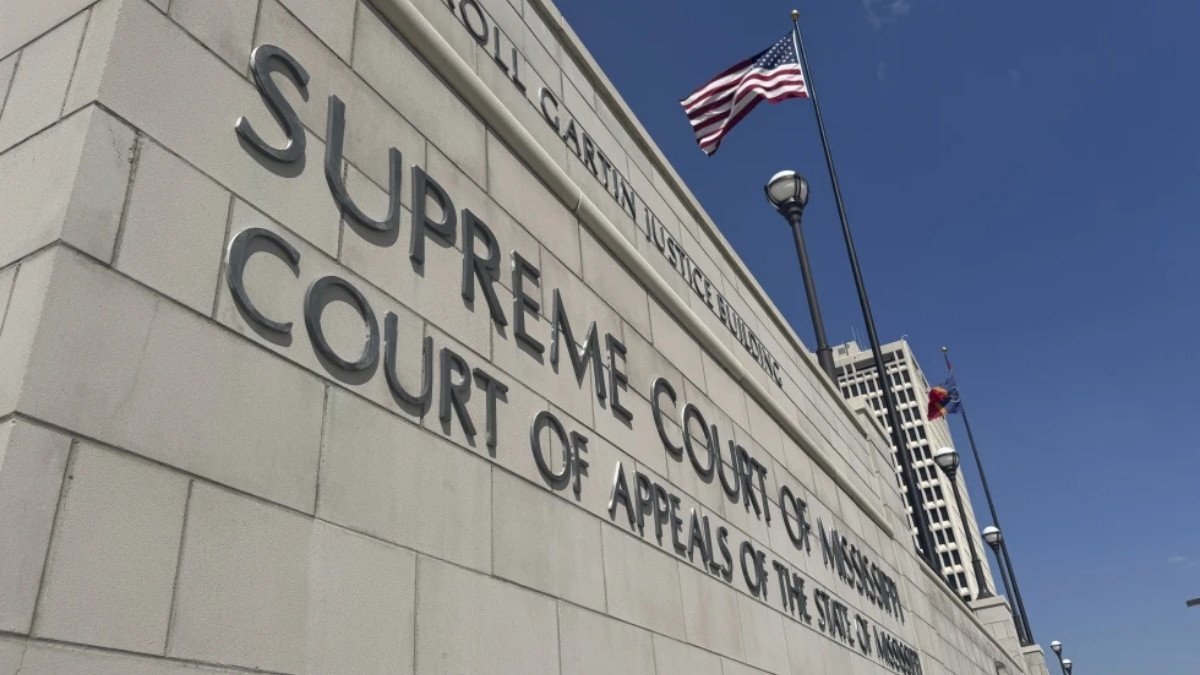A federal judge has ruled that Mississippi must redraw its Supreme Court electoral map because it weakens the voting power of Black residents. The map currently in use was enacted in 1987.
U.S. District Judge Sharion Aycock said the map violates the Voting Rights Act and cannot be used in future elections. The ruling comes after years of legal challenges.
The Mississippi chapter of the American Civil Liberties Union supported the lawsuit, arguing the map split the Delta region, a historically Black area, diminishing its influence in elections.
“This win corrects a historic injustice,” said Ari Savitzky, a senior staff attorney with the ACLU Voting Rights Project. “Fair district lines give Black voters an equal voice in shaping the state’s future.”
The lawsuit was filed on April 25, 2022, and argued that the map reduced the voting strength of Black residents in the Central District. This part of Mississippi has historically elected Black leaders.
Judge Aycock noted that only four Black people have served on the Mississippi Supreme Court. All held the same seat in the Central District and were first appointed by a governor.
Aycock said she will set a deadline for the Mississippi Legislature to create a new electoral map. The ruling leaves the current map unusable for upcoming elections.
The Delta region has long been a center of Black political and cultural life. By splitting it, the existing map has diluted the community’s influence in statewide judicial elections.
ACLU attorneys argued that fair maps could help new generations of Black leaders run for the state’s highest court. They said representation matters not only for the voters but for judicial diversity.
The ruling has drawn attention from voting rights advocates nationwide. They say the decision could serve as a model for challenging other judicial district maps that weaken minority voting power.
Mississippi legislators now face the task of redrawing the map while complying with federal law. Legal experts expect negotiations and public input to shape the new district boundaries.
The judge’s decision highlights a broader pattern of challenges to electoral maps across the United States. Courts have increasingly ruled against maps that reduce minority voting strength.
Savitzky said the ruling will benefit all Mississippians by ensuring election fairness and equal opportunity. “New leaders will have a chance to serve on the state Supreme Court, reflecting the diversity of the population,” he added.
Legal analysts say the ruling emphasizes the role of courts in protecting minority voting rights. Maps that dilute votes can have long-term effects on governance and policy decisions.
Mississippi’s government has yet to comment on the ruling. Observers say the state will likely appeal or seek guidance from federal courts on redrawing the map.
The case also shows the lasting impact of historical districting decisions. Maps drawn decades ago continue to affect political representation, particularly in areas with concentrated minority populations.
Judge Aycock’s ruling could affect future elections in Mississippi. By ensuring fair representation, the decision may open doors for more Black candidates to serve on the Supreme Court.
Voting rights experts say this ruling reinforces the importance of compliance with the Voting Rights Act. Courts can step in when state maps weaken minority voters’ influence in elections.
The ACLU’s involvement reflects a long-term commitment to challenging unfair district maps. Advocates hope that fairer maps will encourage broader participation in judicial elections.
Mississippi’s next steps will include public hearings and legislative debate. Lawmakers will need to balance political concerns with legal requirements for fair representation.
The ruling adds to ongoing national discussions about voting access and judicial representation. Many states face similar lawsuits challenging maps that may suppress minority votes.
Experts say the decision may also influence reforms in other southern states with similar districting patterns. Voting rights organizations are closely monitoring the case for precedent.
By requiring a new map, the court ensures Black voters in Mississippi have a fair chance to impact the selection of Supreme Court justices. The ruling may shape policy debates for years.
The judge’s order reflects the importance of accurate representation in state courts. Fair maps allow all communities to have a voice in electing justices who make critical legal decisions.
Redrawing the map will require legislative action and careful planning to meet legal standards. The process may take months, but it sets a framework for fair judicial elections in Mississippi.
The ACLU hailed the ruling as a step toward correcting decades of inequality in political representation. Advocates emphasize that the decision protects the rights of Black voters.
[inline_related_posts title=”RECOMMENDED” title_align=”left” style=”list” number=”2″ align=”none” ids=”” by=”categories” orderby=”rand” order=”DESC” hide_thumb=”no” thumb_right=”no” views=”no” date=”yes” grid_columns=”2″ post_type=”” tax=””]
Mississippi’s Supreme Court districts will now reflect the legal requirement to avoid vote dilution. This decision could encourage more diverse candidates to run for the state’s highest court.
The ruling underscores the ongoing challenges of ensuring equal voting rights in the United States. Courts continue to play a vital role in maintaining fair representation for minority communities.















